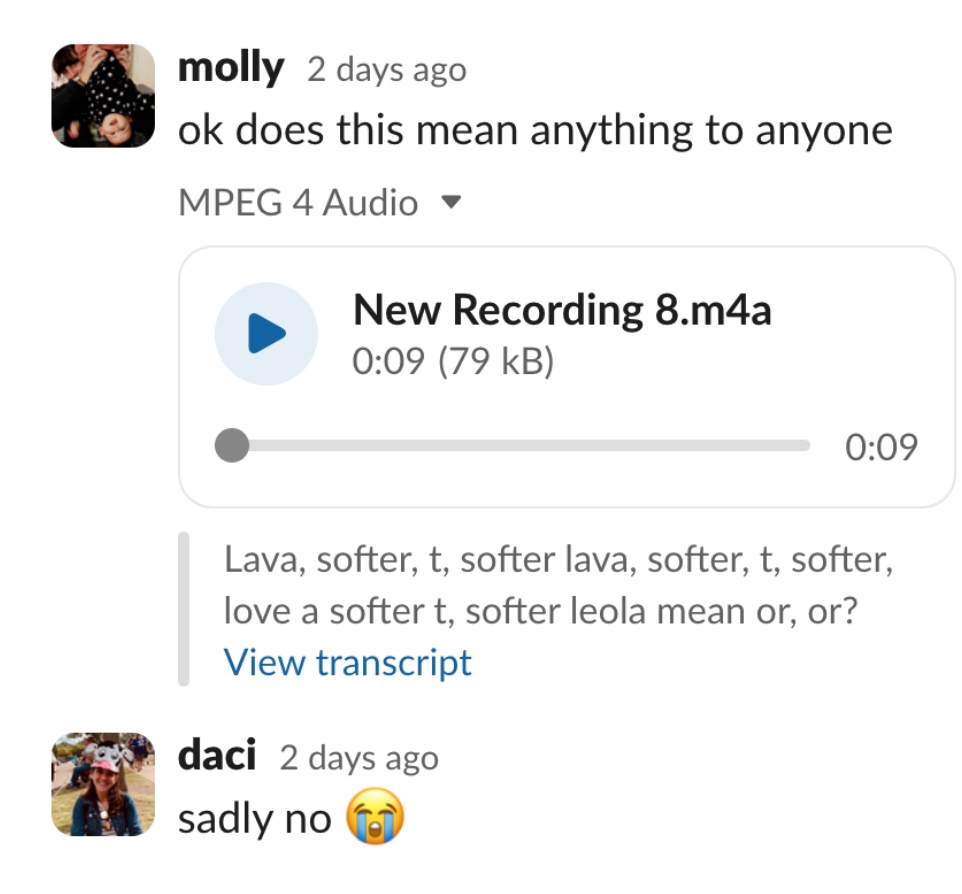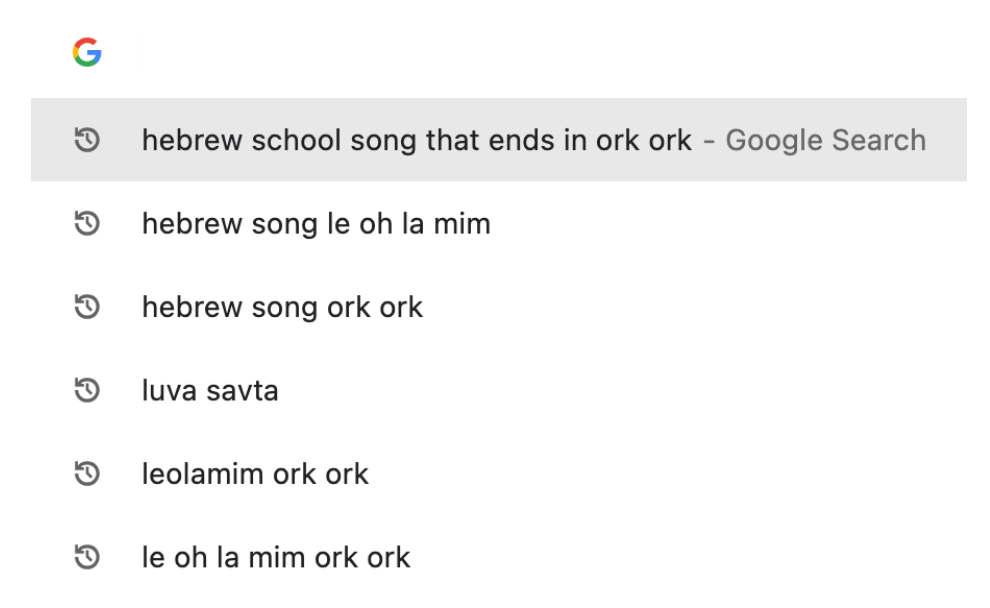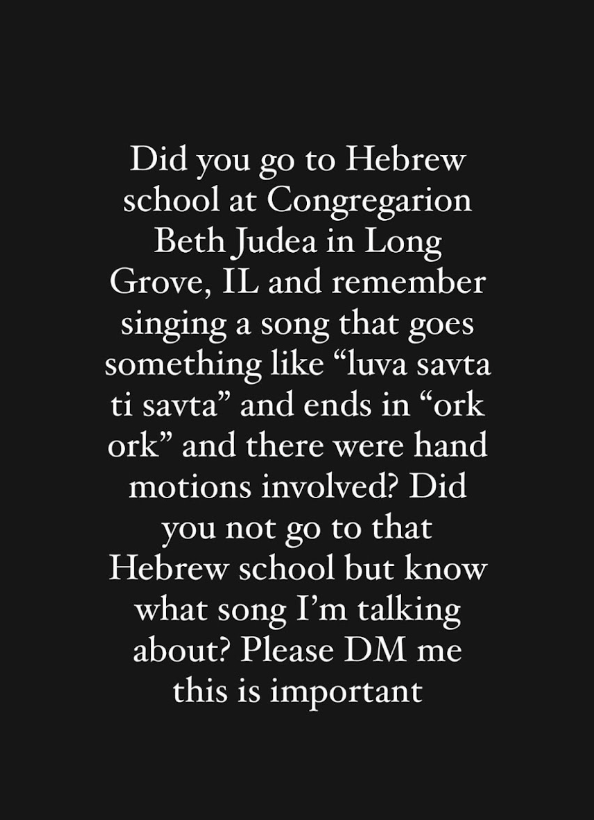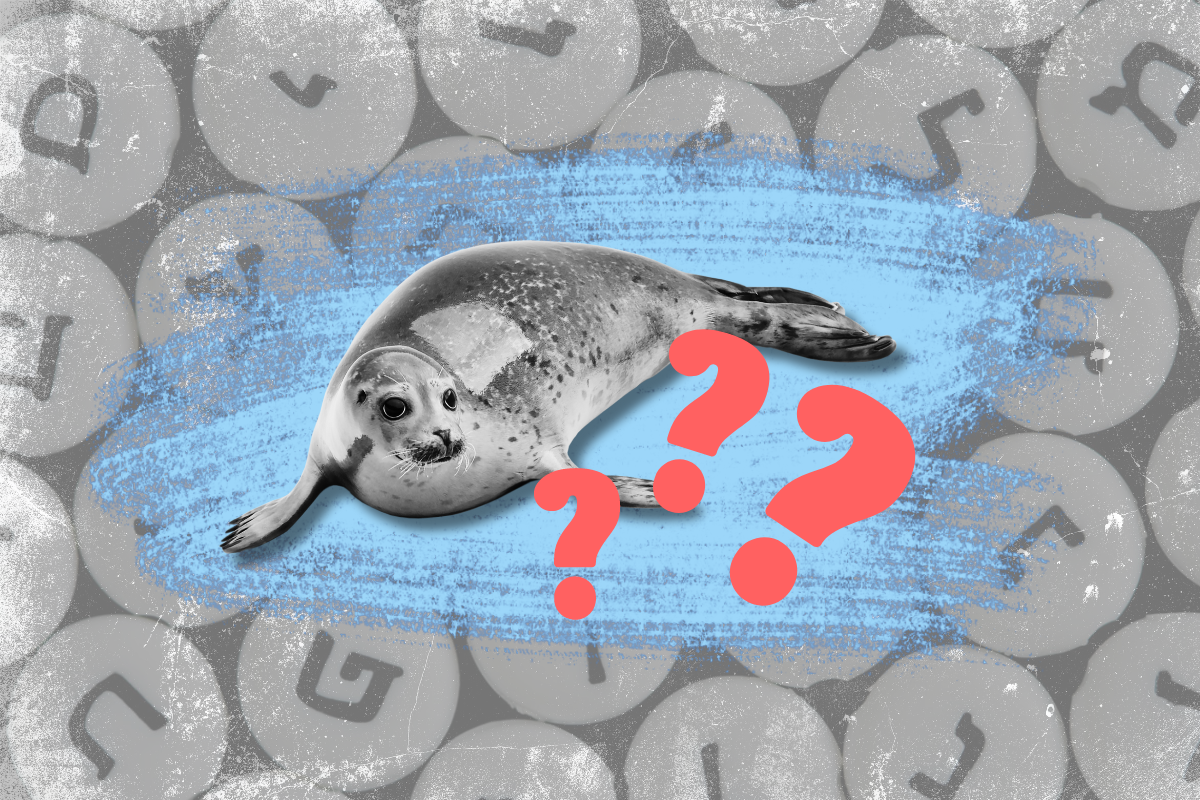There has been a tune stuck in my head since roughly 1995. The lyrics — in Hebrew — remain foggy, but the general sounds, and certainly the melody, resound sweetly, crystal clear. So too do the hand motions involved with the final lines, in which you cross your arms, twist your palms to face each other, and give a little clap while making the sound of a seal: “Ork ork!”
It’s a song I learned in Hebrew school in the suburbs of Chicago, and along with the Aleinu and the story of Queen Esther, it’s one of my favorite memories from that education some 30 years ago. But what I actually remember about the song is so vague that it’s made my search to figure out any other details — its name, history, lyrics, official recordings — nearly impossible.
Across decades and state lines, I have hummed the song mindlessly, my arms subconsciously flapping like a seal. Was the song itself about seals? Was it an Israeli nursery rhyme? Are there even seals in Israel? Was there some kind of moral to this story, as there often was in Hebrew school tales?
And does anybody else remember this song besides me?
That last question started to really irk me over the past week after I made an offhand joke about “the Hebrew school seal song” during a work meeting only to be met with zero recognition from my Jewish colleagues. Surely I am describing it wrong, I thought, but if I record myself singing it, they’ll know exactly what I’m talking about.

They did not know what I was talking about. And so, my investigation began.
First, I hit up Google. I tried as best as I could to transliterate the Hebrew words I remembered, or thought I remembered, to see if something might pull up. I was confident that the last word before the seal sounds were “le’olamim” and that something along the lines of “luva savta” (were the seals grandmothers?) was in there, too.

I discovered that the word “le’olamim,” which means “forever” in Hebrew, is a common word in many songs. And while I stumbled upon a few real gems, like this clip from “Winnie the Pooh” in Hebrew featuring a song called “Forever and Ever” and this instructional dance video for a song called “”Hu-Or Le’olamim”shot in a lovely woman’s living room, none of them matched the song in my mind. A colleague wondered if it could possibly be this song called “Le’olamim” by Shlomo Artzi, but it notably does not contain any seal sounds — nary an ork — so my work was not done.
Next I hit up the group chat to see if anyone else remembered this song or if it was possible that I hallucinated it. I am lucky enough to remain very close friends with four girls from my hometown, a few of whom went to the same Hebrew school as me. I sent them my recording and this time, I got an instant reply from one of the Laurens (there are two Laurens): “I do! I feel like I sing that song all the time, and I have looked it up with no success.” Before I had a chance to reply with “same!!!!” she followed up with, “There was a hand movement that went with it, too.”
This was great news for my sanity, but not so helpful in my search for answers. It did, however, leave me even more motivated to track the Ork Ork song down.
So I cast a wider net: my Instagram story.

Pleading with the masses (OK, my select Instagram followers), I asked for any intel that folks might have. And slowly but surely, the leads started pouring in:
I didn’t go to Hebrew school there but my cousins did and I remember that for some reason
Want me to ask [redacted] who is still a member there? She remembers everything
I do remember but don’t remember the song…
Yep I definitely remember this.
I only know Bim Bam
I’m very curious! I have a vague memory of this.
Ask Lawrence LeVine?
This last suggestion turned out to be a brilliant one. If you’re Jewish and live in the northwest suburbs of Chicago, it’s more likely than not you know Lawrence LeVine. He was a Hebrew school teacher and youth advisor at my synagogue growing up, and also worked at the Jewish summer camp I went to in Wisconsin. To this day he is an active synagogue member and just one of those people who knows everyone. The question was: Did he know the Ork Ork song?
I shot off a random Facebook message and within 30 minutes, I got the reply: “Was it Ayvanya Tevanya? The Two Seals?”
This certainly sounded promising. But a quick Google search of “Ayvanya Tevanya” or “The Two Seals” still turned up bupkis. I started to joke with my colleagues that maybe some random Hebrew school teacher made up the song, which is why I could find no trace of it online and only people from the Chicago suburbs seemed to remember it. Feeling defeated and beginning to lose hope, I moved on with my day.
Two hours later, I got the phone call I’d been waiting for.
Would you believe that some random Hebrew school teacher made it up?
It turns out that Lawrence had done some digging of his own, speaking to fellow Chicago-area Jewish educator Chuck Kahalnik. Chuck instantly knew the song in question, and confirmed that a youth director named Michael Blue had come up with the song “a million years ago,” most likely for a USY event, and it somehow gained traction throughout the Chicagoland area and possibly beyond. Chuck refers to the song as “a shtick” about two seals in love on an iceberg that splits — one named Ayvanya and one named Tevanya — who call out to each other as they slip further and further away.
The song was never recorded, and is most likely not sung in youth groups today. But it clearly made its way into the heads and hearts of many ‘90s Hebrew school kids who decades later still hum the tune and wonder what the deal was with those Jewish seals.
I texted my group chat with the news, and the accolades starting pouring in:

But now, in true Hebrew school fashion, I was left wondering what the moral of this tale is. Is it an ode to the unsung, often begrudged labor of love that so many religious educators take on? Is it about the power of creativity and music in unlocking core memories and the foundation of our Jewish identities? Could it be the magic of regional specificity and the joy in digging into your local Jewish community?
Or is it about the seals?
As we end our illuminating phone call, I thank Lawrence for his time and indispensable aid in tracking down the mystery of the Ork Ork song. It is then that yet another bombshell is dropped, another blow to the memory that rang so clearly through my ears: “It wasn’t ‘ork ork,’ by the way, it was ‘toot toot.’”
Thus set off yet another investigation — what does a seal actually sound like? — and maybe the answer to the true moral of this tale: The fact of a memory can be deceiving, but in our search for the truth we can call out to each other, no matter how far we’ve drifted apart, and take solace in a voice on the other side that says yes, yes, I remember that, too.








